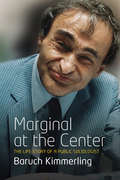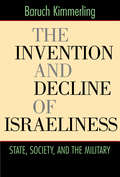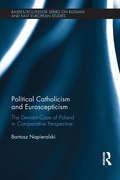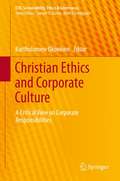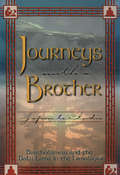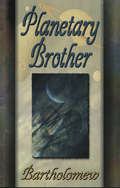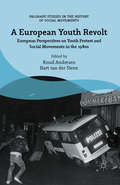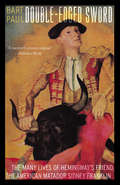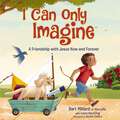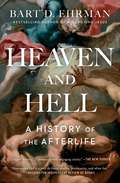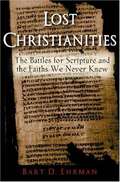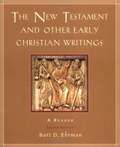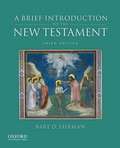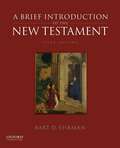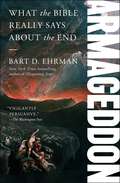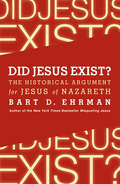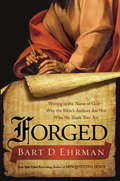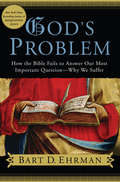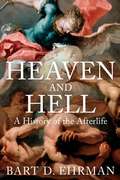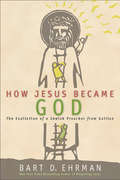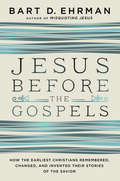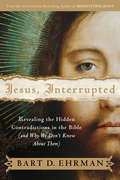- Table View
- List View
Marginal At The Center: The Life Story of a Public Sociologist
by Baruch KimmerlingA self-proclaimed guerrilla fighter for ideas, Baruch Kimmerling was an outspoken critic, a prolific writer, and a "public" sociologist. While he lived at the center of the Israeli society in which he was involved as both a scientist and a concerned citizen, he nevertheless felt marginal because of his unconventional worldview, his empathy for the oppressed, and his exceptional sense of universal justice, which were at odds with prevailing views. In this autobiography, the author, who was born in Transylvania in 1939 with cerebral palsy, describes how he and his family escaped the Nazis and the circumstances that brought them to Israel, the development of his understanding of Israeli and Palestinian histories, of the narratives each society tells itself, and of the implacable "situation"--along with predictions of some of the most disturbing developments that are taking place right now as well as solutions he hoped were still possible. Kimmerling's deep concern for Israel's well-being, peace, and success also reveals that he was in effect a devoted Zionist, contrary to the claims of his detractors. He dreamed of a genuinely democratic Israel, a country able to embrace all of its citizens without discrimination and to adopt peace as its most important objective. It is to this dream that this posthumous translation from Hebrew has been dedicated.
The Invention and Decline of Israeliness
by Baruch KimmerlingThis thought-provoking book, the first of its kind in the English language, reexamines the fifty-year-old nation of Israel in terms of its origins as a haven for a persecuted people and its evolution into a multi- cultural society. Arguing that the mono-cultural regime built during the 1950s is over, Baruch Kimmerling suggests that the Israeli state has divided into seven major cultures. These seven groups, he contends, have been challenging one other for control over resource distribution and the identity of the polity. Kimmerling, one of the most prominent social scientists and political analysts of Israel today, relies on a large body of sociological work on the state, civil society, and ethnicity to present an overview of the construction and deconstruction of the secular-Zionist national identity. He shows how Israeliness is becoming a prefix for other identities as well as a legal and political concept of citizen rights granted by the state, though not necessarily equally to different segments of society.
Political Catholicism and Euroscepticism: The Deviant Case of Poland in Comparative Perspective (BASEES/Routledge Series on Russian and East European Studies)
by Bartosz NapieralskiThis book explores the phenomena of both Political Catholicism and the growth of Euroscepticism across Eastern and Western Europe. It focuses in particular on Political Catholicism in Poland, but sets this in its wider European context. It examines the nature of Political Catholicism as a political movement, discusses the circumstances in which Political Catholicism, which has traditionally been pro-European, can turn to being Eurosceptic, and argues that Political Catholicism in Poland is a special case because of its Catholic-nationalist nature. The book concludes by assessing the role religion plays in the politics of modern Europe and outlines the implications for the future studies of European integration.
Christian Ethics and Corporate Culture: A Critical View on Corporate Responsibilities (CSR, Sustainability, Ethics & Governance)
by Bartholomew OkonkwoThe essays collected in this book discuss the contemporary practice of corporate responsibility by applying the Christian principles of the unity of knowledge and pursuit of truth to the traditional principles of justice, human dignity and the common good, to rediscover a corporate culture that will help transform our economic system and the characteristics required to build an enduring trust in economic relationships. In this volume a select group of management theorists, theologians, legal scholars, economists and ethicists jointly strive to give back to the market economy its ethical and political dimensions. They assess the quality of present day corporate social responsibility, discuss the social and environmental costs of production and argue for an agenda that can be used in modern corporations in their effort to align profitability and growth with business ethics.
Finding Meaning in Business
by Bartholomew C. OkonkwoCombining creative biblical interpretation, Christian moral reflection, and business expertise, Finding Meaning in Business is a thoughtful and thought-provoking look at how business leaders, professionals, and students can integrate a sense of calling into their careers and into the business world as a whole.
Journeys With a Brother: Japan To India
by BartholomewJourneys with a Brother chronicles an insightful, often humorous adventure, where Bartholomew’s spiritual revelations permeate the existing physical reality. A group of ordinary people travel from the temples of Japan to the heights of the Himalayas to experience a sacred initiation given by the 14th Dalai Lama.
Planetary Brother
by BartholomewYou will learn how to work toward global peace, global love, and global harmony, which is the absolute destiny of this planet - you are doing God's will. Your consciousness moving through your physical body ultimately will change this planet.
A European Youth Revolt: European Perspectives on Youth Protest and Social Movements in the 1980s (Palgrave Studies in the History of Social Movements)
by Bart van der SteenDuring the early 1980s, large parts of Europe were swept with riots and youth revolts. Radicalised young people occupied buildings and clashed with the police in cities such as Zurich, Berlin and Amsterdam, while in Great Britain and France, 'migrant' youths protested fiercely against their underprivileged position and police brutality. Was there a link between the youth revolts in different European cities, and if so, how were they connected and how did they influence each other? These questions are central in this volume. This book covers case studies from countries in both Eastern and Western Europe and focuses not only on political movements such as squatting, but also on political subcultures such as punk, as well as the interaction between them. In doing so, it is the first historical collection with a transnational and interdisciplinary perspective on youth, youth revolts and social movements in the 1980s.
Double-Edged Sword: The Many Lives of Hemingway's Friend, the American Matador Sidney Franklin
by Bart PaulSidney Franklin (1903–76) was the last person you&’d expect to become a bullfighter. The streetwise son of a Russian Jewish cop, Sidney had an all-American boyhood in early twentieth-century Brooklyn—while hiding the fact that he was gay. A violent confrontation with his father sent him packing to Mexico City, where first he opened a business, then he opened his mouth—bragging that Americans had the courage to become bullfighters. Training with iconic matador Rodolfo Gaona, Sidney&’s dare spawned a legend. Following years in small-town Mexican bullrings, he put his moxie where his mouth was, taking Spain by storm as the first American matador. Sidney&’s 1929 rise coincided with that of his friend Ernest Hemingway&’s, until a bull&’s horn in a most inappropriate place almost ended his career—and his life. Bart Paul illuminates the artistry and violence of the mysterious ritual of the bulls as he tells the story of this remarkable character, from Franklin&’s life in revolutionary Mexico to his triumphs in Spain, from the pages of Death in the Afternoon to the destructive vortex of Hemingway&’s affair with Martha Gellhorn during the bloody Spanish Civil War. This is the story of an unlikely hero—a gay man in the most masculine of worlds who triumphed over prejudice and adversity as he achieved what no American had ever accomplished, teaching even Hemingway lessons in grace, machismo, and respect.
Homesick
by Bart MillardThere are days when we feel homesick. Days when we have strayed far from the plan that our Father has set for us, times when we simply want to feel at home and know that our pilgrimage has purpose.
I Can Only Imagine: A Friendship with Jesus Now and Forever
by Bart MillardEncourage your children&’s sense of wonder and faith with I Can Only Imagine, inspired by the hit song by MercyMe. This beautiful picture book will capture your family&’s childlike faith and imagination. I Can Only Imagine asks questions a child might ask and invites families to wonder together: What is heaven like? What does God do? What would it be like to spend a day with Jesus? Children will see that although experiencing the glory of heaven may be far off, we can enjoy a friendship with Jesus every day - right here on earth. Whimsical, playful illustrations and thought-provoking questions make this a book that families will cherish.Fun and vibrant illustrations offer a vivid visual and will help your children see that God can be found everywhere, every day. I think about heaven as I look up at the skyAnd watch the fluffy clouds roll by.The more I imagine, the more I wish I knew.I wonder, would God like pancakes with extra syrup too?And if God and I spent the day together, what exactly would we do?The Christian worship song &“I Can Only Imagine&” touched countless lives with its glorious representation of being in the presence of God, and this beautifully illustrated picture book invites you and your children to imagine those same wonders. Share the joy of a personal relationship with the Lord with your family today through the creative, faith-filled book I Can Only Imagine.
Heaven and Hell: A History of the Afterlife
by Bart EhrmanA New York Times bestselling historian of early Christianity takes on two of the most gripping questions of human existence: where did the ideas of heaven and hell come from, and why do they endure? <P><P>What happens when we die? A recent Pew Research poll showed that 72% of Americans believe in a literal heaven, 58% in a literal hell. Most people who hold these beliefs are Christian and assume they are the age-old teachings of the Bible. But eternal rewards and punishments are found nowhere in the Old Testament and are not what Jesus or his disciples taught. So where did the ideas come from? <P><P>In clear and compelling terms, Bart Ehrman recounts the long history of the afterlife, ranging from The Epic of Gilgamesh up to the writings of Augustine, focusing especially on the teachings of Jesus and his early followers. He discusses ancient guided tours of heaven and hell, in which a living person observes the sublime blessings of heaven for those who are saved and the horrifying torments of hell for the damned. Some of these accounts take the form of near death experiences, the oldest on record, with intriguing similarities to those reported today. <P><P> One of Ehrman’s startling conclusions is that there never was a single Greek, Jewish, or Christian understanding of the afterlife, but numerous competing views. Moreover, these views did not come from nowhere; they were intimately connected with the social, cultural, and historical worlds out of which they emerged. Only later, in the early Christian centuries, did they develop into the notions of eternal bliss or damnation widely accepted today. <P><P> As a historian, Ehrman obviously cannot provide a definitive answer to the question of what happens after death. In Heaven and Hell, he does the next best thing: by helping us reflect on where our ideas of the afterlife come from, he assures us that even if there may be something to hope for when we die, there is certainly nothing to fear.
Lost Christianities: The Battles For Scripture And The Faiths We Never Knew
by Bart EhrmanThe early Christian Church was a chaos of contending beliefs. Some groups of Christians claimed that there was not one God but two or twelve or thirty. Some believed that the world had not been created by God but by a lesser, ignorant deity. Certain sects maintained that Jesus was human but not divine, while others said he was divine but not human. In Lost Christianities, Bart D. Ehrman offers a fascinating look at these early forms of Christianity and shows how they came to be suppressed, reformed, or forgotten. All of these groups insisted that they upheld the teachings of Jesus and his apostles, and they all possessed writings that bore out their claims, books reputedly produced by Jesus's own followers. Modern archaeological work has recovered a number of key texts, and as Ehrman shows, these spectacular discoveries reveal religious diversity that says much about the ways in which history gets written by the winners. Ehrman's discussion ranges from considerations of various "lost scriptures"--including forged gospels supposedly written by Simon Peter, Jesus's closest disciple, and Judas Thomas, Jesus's alleged twin brother--to the disparate beliefs of such groups as the Jewish-Christian Ebionites, the anti-Jewish Marcionites, and various "Gnostic" sects. Ehrman examines in depth the battles that raged between "proto-orthodox Christians"--those who eventually compiled the canonical books of the New Testament and standardized Christian belief--and the groups they denounced as heretics and ultimately overcame. Scrupulously researched and lucidly written, Lost Christianities is an eye-opening account of politics, power, and the clash of ideas among Christians in the decades before one group came to see its views prevail.
The New Testament And Other Early Christian Writings: A Reader
by Bart EhrmanThe twenty-seven books of the New Testament were not the only writings produced by early Christians. Nor were they the only ones to be accepted, at one time or another, as sacred Scripture. Unfortunately, nearly all the other early Christian writings have been lost or destroyed. But approximately twenty-five books written at about the same time as the New Testament have survived--books that reveal the rich diversity of early Christian views about God, Jesus, the world, salvation, ethics, and ritual practice. This reader presents, for the first time in one volume, every Christian writing known to have been produced during the first hundred years of the church (30-130 C.E.). In addition to the New Testament itself, it includes other, noncanonical Gospels, Acts, Epistles, and Apocalypses, as well as additional important writings, such as those of the Apostolic Fathers. Each text is provided in an up-to-date and readable translation (including the NRSV for the New Testament), and introduced with a succinct and incisive discussion of its author, date of composition, and overarching themes. This second edition adds The Martyrdom of Polycarp, an important text that will enhance the collection's utility in the classroom. It also features Ehrman's new, accessible translations of many of the noncanonical works and provides updated introductions that incorporate the most recent scholarship. With an opening overview that shows how the canon of the New Testament came to be formulated--the process by which some Christian books came to be regarded as sacred Scripture whereas others came to be excluded--this accessible reader will meet the needs of students, scholars, and general readers alike. An ideal primary text for courses in the New Testament, Christian Origins, and Early Church History, it can be used in conjunction with its companion volume, the author's The New Testament: A Historical Introduction to the Early Christian Writings, 3/e (OUP, 2003).
A Brief Introduction To The New Testament
by Bart D. EhrmanFeaturing vibrant full color throughout, this new edition of A Brief Introduction to the New Testament is a concise version of Bart D. Ehrman's best-selling The New Testament: A Historical Introduction to the Early Christian Writings, Fourth Edition. Retaining the approach of the longer textbook while condensing and simplifying much of its material, this volume looks at the New Testament from a consistently historical and comparative perspective and emphasizes the rich diversity of the earliest Christian literature. Distinctive to this study is its emphasis on the historical, literary, and religious milieux of the Greco-Roman world, including early Judaism. A Brief Introduction to the New Testament, Second Edition, incorporates a wealth of pedagogical resources including an extensive text box program, study questions, maps, timelines, and more than seventy photos (including two photo essays). A comprehensive glossary contains more than 200 key terms; these terms appear in boldface type the first time they are used in each chapter and are also listed at the end of each chapter in which they appear. An updated Student Website contains chapter summaries, key terms, guides for reading, and self-quizzes. An accompanying Instructor's Manual provides chapter summaries, pedagogical suggestions, and a test bank.
A Brief Introduction to the New Testament
by Bart D. EhrmanA Brief Introduction to the New Testament, Fifth Edition, is a concise version of Bart D. Ehrman's best-selling The New Testament: A Historical Introduction to the Early Christian Writings, Seventh Edition. Retaining the approach of the longer textbook while condensing and simplifying much of its material, this volume looks at the New Testament from a consistently historical and comparative perspective and emphasizes the rich diversity of the earliest Christian literature. Distinctive to this study is its emphasis on the historical, literary, and religious milieux of the Greco-Roman world, including early Judaism.
Armageddon: What the Bible Really Says about the End
by Bart D. EhrmanA &“humane, thoughtful, and intelligent&” (The New York Times Book Review) bestselling Biblical scholar reveals why our popular understanding of the Apocalypse is all wrong—and why that matters.You&’ll find nearly everything the Bible says about the end in the Book of Revelation: a mystifying prophecy filled with bizarre symbolism, violent imagery, mangled syntax, confounding contradictions, and very firm ideas about the horrors that await us all. But no matter what you think Revelation reveals—whether you read it as a literal description of what will soon come to pass, interpret it as a metaphorical expression of hope for those suffering now, or only recognize its highlights from pop culture—you&’re almost certainly wrong. In Armageddon, acclaimed New Testament authority Bart D. Ehrman delves into the most misunderstood—and possibly most dangerous—book of the Bible, on a &“vigilantly persuasive&” (The Washington Post) tour through three millennia of Judeo-Christian thinking about how our world will end. With wit and verve, he explores the alarming social and political consequences of expecting an imminent apocalypse, considers whether the message of Revelation may be at odds with the teachings of Jesus, and offers inspiring insight into how to live in the face of an uncertain future. By turns hilarious, moving, troubling, and provocative, Armageddon is nothing short of revelatory in its account of what the Bible really says about the end.
Did Jesus Exist?
by Bart D. EhrmanFor years Bart Ehrman has been routinely bombarded with one question: Did Jesus Exist? As a leading Bible expert, fans and critics alike have sent letters, emails, posted blogs, and questioned Ehrman during interviews wanting his opinion about this nagging question that has become a conspiracy theorist cottage industry the world over. The idea that the character of Jesus was an invention of the early church-and later a tool of control employed by the Roman Catholic Church-is a widely held belief and Ehrman has decided it's time to put the issue to rest. Yes, the historical Jesus of Nazareth did exist. Known as a master explainer with deep knowledge of the field, Ehrman methodically demolishes both the scholarly and popular "mythicist" arguments against the existence of Jesus. Marshaling evidence from within the Bible and the wider historical record of the ancient world, Ehrman tackles the key issues that surround the popular mythologies associated with Jesus and the early Christian movement. Throughout Did Jesus Exist? Ehrman establishes the criterion for any genuine historical investigation and provides a robust defense of the methods required to discover the Jesus of history. Those committed to the "non-existence" theory will need to read this formidable scholar's counter argument while the more traditionally minded will enthusiastically support Ehrman's definitive answer to the question. Perfect for the vigorous online debating community, this eBook original will be a must read for anyone interested in Jesus, the Bible, and the birth of Christianity.
Forged: Writing in the Name of God--Why the Bible's Authors Are Not Who We Think They Are
by Bart D. EhrmanIt is often said, even by critical scholars who should know better, that "writing in the name of another" was widely accepted in antiquity. But New York Times bestselling author Bart D. Ehrman dares to call it what it was: literary forgery, a practice that was as scandalous then as it is today. In Forged, Ehrman's fresh and original research takes readers back to the ancient world, where forgeries were used as weapons by unknown authors to fend off attacks to their faith and establish their church. So, if many of the books in the Bible were not in fact written by Jesus's inner circle-but by writers living decades later, with differing agendas in rival communities-what does that do to the authority of Scripture? Ehrman investigates ancient sources to: Reveal which New Testament books were outright forgeries. Explain how widely forgery was practiced by early Christian writers-and how strongly it was condemned in the ancient world as fraudulent and illicit. Expose the deception in the history of the Christian religion. Ehrman's fascinating story of fraud and deceit is essential reading for anyone interested in the truth about the Bible and the dubious origins of Christianity's sacred texts.
God's Problem: How the Bible Fails to Answer Our Most Important Question--Why We Suffer (The A to Z Guide Series, No. 194)
by Bart D. EhrmanOne Bible, Many AnswersIn God's Problem, the New York Times bestselling author of Misquoting Jesus challenges the contradictory biblical explanations for why an all-powerful God allows us to suffer.
Heaven and Hell: A History of the Afterlife
by Bart D. EhrmanWhether we believe in them or not, we are all familiar with the concepts of heaven and hell. There was a time, however, when no one thought they would go to either of these places after they died. In fact, Jesus didn&’t believe a dead person&’s soul was bound for heaven or hell, and these ideas are nowhere to be found in the Old Testament. So, where did they come from? From the Epic of Gilgamesh to the writings of Augustine, Bart Ehrman provides a fascinating and thought-provoking history of the afterlife. He traces how beliefs changed over time and reveals the social, cultural and historical roots of competing views held by Greeks, Jews and Christians. Ultimately, he shows that many of our ideas about heaven and hell emerged long after Jesus&’s time, through the struggle to explain the injustices of our world.
How Jesus Became God
by Bart D. EhrmanIn a book that took eight years to research and write, leading Bible scholar Bart D. Ehrman explores how an apocalyptic prophet from the backwaters of rural Galilee crucified for crimes against the state came to be thought of as equal with the one God Almighty Creator of all things. Ehrman sketches Jesus's transformation from a human prophet to the Son of God exalted to divine status at his resurrection. Only when some of Jesus's followers had visions of him after his death--alive again--did anyone come to think that he, the prophet from Galilee, had become God. And what they meant by that was not at all what people mean today.As a historian--not a believer--Ehrman answers the questions: How did this transformation of Jesus occur? How did he move from being a Jewish prophet to being God? The dramatic shifts throughout history reveal not only why Jesus's followers began to claim he was God, but also how they came to understand this claim in so many different ways.Written for secular historians of religion and believers alike, How Jesus Became God will engage anyone interested in the historical developments that led to the affirmation at the heart of Christianity: Jesus was, and is, God.
Jesus Before the Gospels
by Bart D. EhrmanThe bestselling author of Misquoting Jesus, one of the most renowned and controversial Bible scholars in the world today examines oral tradition and its role in shaping the stories about Jesus we encounter in the New Testament--and ultimately in our understanding of Christianity.Throughout much of human history, our most important stories were passed down orally--including the stories about Jesus before they became written down in the Gospels. In this fascinating and deeply researched work, leading Bible scholar Bart D. Erhman investigates the role oral history has played in the New Testament--how the telling of these stories not only spread Jesus' message but helped shape it.A master explainer of Christian history, texts, and traditions, Ehrman draws on a range of disciplines, including psychology and anthropology, to examine the role of memory in the creation of the Gospels. Explaining how oral tradition evolves based on the latest scientific research, he demonstrates how the act of telling and retelling impacts the story, the storyteller, and the listener--crucial insights that challenge our typical historical understanding of the silent period between when Jesus lived and died and when his stories began to be written down.As he did in his previous books on religious scholarship, debates on New Testament authorship, and the existence of Jesus of Nazareth, Ehrman combines his deep knowledge and meticulous scholarship in a compelling and eye-opening narrative that will change the way we read and think about these sacred texts.s-long gap between when Jesus lived and when the Gospels began to appear.Praise for Bart D. Ehrman"Bart Ehrman has made a career of zeroing in on some of the most difficult questions at the intersection of faith and history."--The Boston Globe"Ehrman has a gift for bringing to life the dusty and scholarly."--Publishers Weekly"A prolific and popular author."--The San Diego Union-Tribune"A lucid expositor."--The New Yorker
Jesus Before the Gospels: How the Earliest Christians Remembered, Changed, and Invented Their Stories of the Savior
by Bart D. EhrmanThe bestselling author of Misquoting Jesus, one of the most renowned and controversial Bible scholars in the world today examines oral tradition and its role in shaping the stories about Jesus we encounter in the New Testament--and ultimately in our understanding of Christianity.Throughout much of human history, our most important stories were passed down orally--including the stories about Jesus before they became written down in the Gospels. In this fascinating and deeply researched work, leading Bible scholar Bart D. Ehrman investigates the role oral history has played in the New Testament--how the telling of these stories not only spread Jesus' message but helped shape it.A master explainer of Christian history, texts, and traditions, Ehrman draws on a range of disciplines, including psychology and anthropology, to examine the role of memory in the creation of the Gospels. Explaining how oral tradition evolves based on the latest scientific research, he demonstrates how the act of telling and retelling impacts the story, the storyteller, and the listener--crucial insights that challenge our typical historical understanding of the silent period between when Jesus lived and died and when his stories began to be written down.As he did in his previous books on religious scholarship, debates on New Testament authorship, and the existence of Jesus of Nazareth, Ehrman combines his deep knowledge and meticulous scholarship in a compelling and eye-opening narrative that will change the way we read and think about these sacred texts.
Jesus, Interrupted
by Bart D. EhrmanPicking up where Bible expert Bart Ehrman's New York Times bestseller Misquoting Jesus left off, Jesus, Interrupted addresses the larger issue of what the New Testament actually teaches--and it's not what most people think. Here Ehrman reveals what scholars have unearthed:The authors of the New Testament have diverging views about who Jesus was and how salvation worksThe New Testament contains books that were forged in the names of the apostles by Christian writers who lived decades laterJesus, Paul, Matthew, and John all represented fundamentally different religionsEstablished Christian doctrines--such as the suffering messiah, the divinity of Jesus, and the trinity--were the inventions of still later theologiansThese are not idiosyncratic perspectives of just one modern scholar. As Ehrman skillfully demonstrates, they have been the standard and widespread views of critical scholars across a full spectrum of denominations and traditions. Why is it most people have never heard such things? This is the book that pastors, educators, and anyone interested in the Bible have been waiting for--a clear and compelling account of the central challenges we face when attempting to reconstruct the life and message of Jesus.
